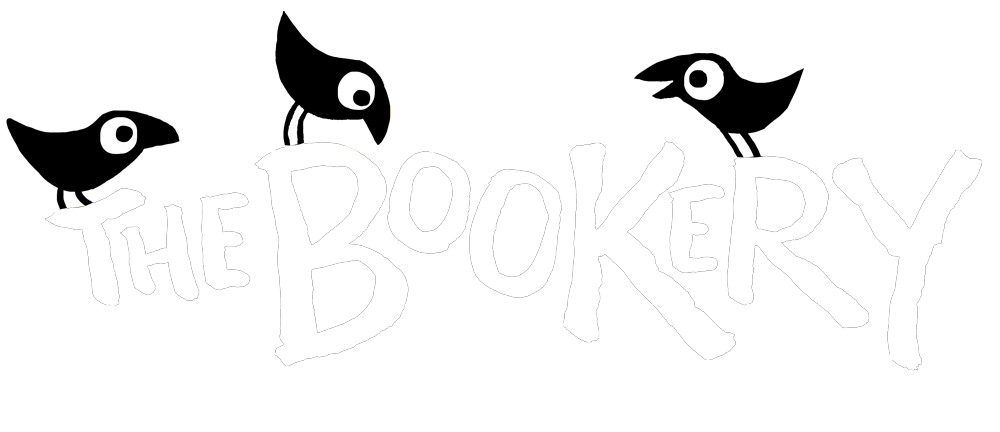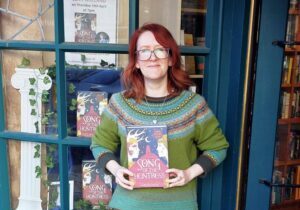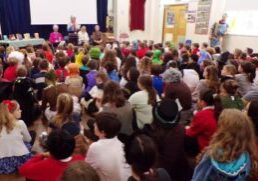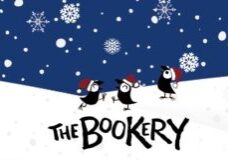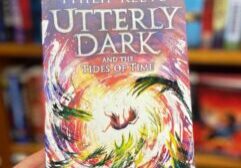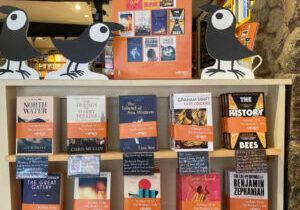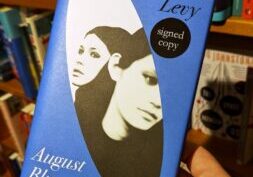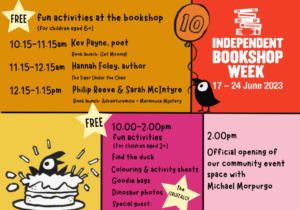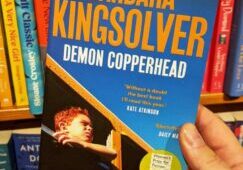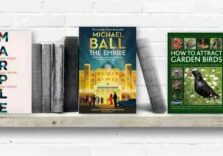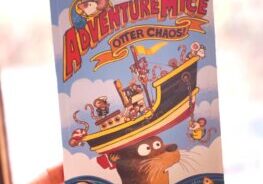FEATURES
Small Press Focus: Old Street Publishing
June 29, 2022 | Blog > Features > Small Press Focus: Old Street Publishing
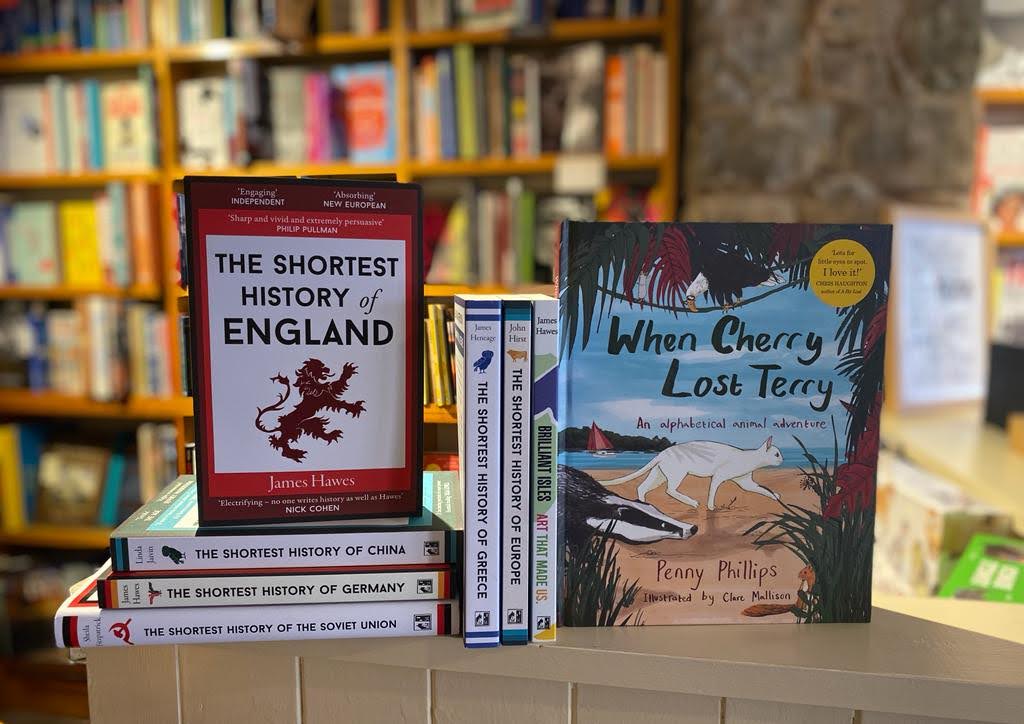
We’re rooting out some great but less well-known small publishers and finding out what makes them tick. This month’s small press is Old Street Publishing – founded in 2006, Old Street is an independent British publisher of fiction and non-fiction who might be recognisable from their excellent ‘Shortest History’ series.
Ben Yarde-Buller kindly gave us some of his time to fill us in with all things Old Street:
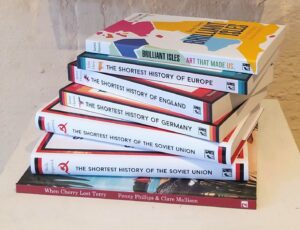 Q: What is Old Street Publishing’s origin story?
Q: What is Old Street Publishing’s origin story?
I wish we had some kind of creation myth!
“In the Age of Swallowing when vast Papery Monsters were so busy Gobbling each other up – which they called Merging – that they didn’t notice the Rising Waters of the Great River Amazon that would soon turn all Paper into Bland, Soggy Mush, a single Egg perched upon a craggy Peak high above the swirling tides did Hatch, and out crawled a Odd-looking Figure wearing Glasses and without much Hair or Dress Sense, and he would be known as an Independent Publisher…”
No. Actually what happened is that, after several years trying to avoid getting a ‘proper’ job (doing bits and pieces of translation, journalism, etc), I surveyed my skill set, realised ‘reading’ was about it, and founded Old Street – having persuaded my wife that we should sell our house to pay for it. I seriously believed that all we had to do was publish good books, and untold riches – or at least basic subsistence – would follow. This was in about 2006. I now look back at this younger version of myself with mingled scorn and envy. Luckily, I managed to persuade David Reynolds, co-founder of Bloomsbury and a very wise publishing head, to help. Without him we wouldn’t have survived.
Q: What do you want Old Street Publishing to be known for?
I guess for excellent publishing across the board: editorial, sales, publicity, production, design. Compared with many other sectors, book publishing is very open to small operators. As long as the skill and dedication are there, a tiny publisher working out of a shed really can compete with huge corporations, certainly at the upmarket, ‘literary’ end of the spectrum. You only have to look at the Booker Prize shortlists to see that this is true.
Q: What book are you most proud of publishing?
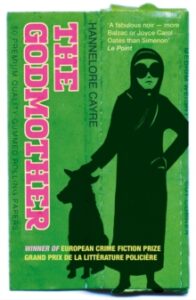 I’m very proud of the ‘shortest history’ series, which we hatched and have worked very hard on, and which has now sold over half a million copies. Partly we just got lucky, but I also think the series meets a genuine need in a country where many people leave school knowing a bit about the Armada and the Blitz and not much other history. The books have been published around the world in, I think, over 30 languages so far, so that has been a nice thing too.
I’m very proud of the ‘shortest history’ series, which we hatched and have worked very hard on, and which has now sold over half a million copies. Partly we just got lucky, but I also think the series meets a genuine need in a country where many people leave school knowing a bit about the Armada and the Blitz and not much other history. The books have been published around the world in, I think, over 30 languages so far, so that has been a nice thing too.
I’m also proud of our fiction: The End of Vandalism and the other ‘Grouse County’ novels by Tom Drury; Theo by Ed Taylor; M.H. Baylis’s Tottenham-set trilogy of ‘anthropological crime’ novels (Death at the Palace, etc.); The Godmother by Hannelore Cayre, which won the Crime Fiction in Translation Dagger a couple of years ago. We have several more exciting things coming up in translation over the next year or two – including a couple of wonderful Russian novels – and are planning to expand that side of the list.
Q: Looking forward to the rest of the year – what upcoming titles should we be getting excited about?
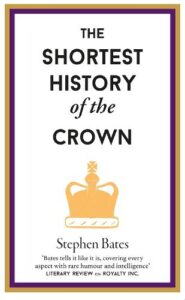 We have a terrific ‘shortest history’ of the British monarchy – The Shortest History of the Crown – out in October. It’s by Stephen Bates, who for a long time was the Guardian’s ‘Religious Affairs and Royal Correspondent’. There’s no forelock-tugging – he has a sharp eye for the foibles and absurdities of the institution down the ages (and into the present) – but at the same time he takes the role of the monarchy in British history and identity seriously. I learned a lot from it.
We have a terrific ‘shortest history’ of the British monarchy – The Shortest History of the Crown – out in October. It’s by Stephen Bates, who for a long time was the Guardian’s ‘Religious Affairs and Royal Correspondent’. There’s no forelock-tugging – he has a sharp eye for the foibles and absurdities of the institution down the ages (and into the present) – but at the same time he takes the role of the monarchy in British history and identity seriously. I learned a lot from it.
There’s also Art that Made Us, our first (sort of) coffee table book, based on the eight-part BBC Two series. It’s by James Hawes, author of The Shortest History of England, and tells an alternative history of the British Isles from the (not so?) Dark Ages up to the present through 80 works of art, literature, music, architecture and so on. Hawes is an amazingly versatile, creative thinker as well as a wonderful storyteller (he’s written several acclaimed novels), and there are fresh, eye-opening insights on every page. Plus the pictures are stunning. That’s coming in November.
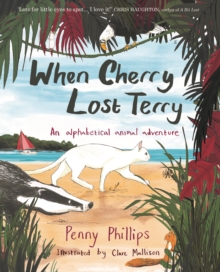 Can I mention a book that’s only just out? It’s our first children’s book, is called When Cherry Lost Terry, and is a heart-warming and funny tale of friendship and adventure told in twenty-six limericks. There’s one for every letter of the alphabet, each featuring a different animal – from Ann the Antelope to Zack the Zebra.
Can I mention a book that’s only just out? It’s our first children’s book, is called When Cherry Lost Terry, and is a heart-warming and funny tale of friendship and adventure told in twenty-six limericks. There’s one for every letter of the alphabet, each featuring a different animal – from Ann the Antelope to Zack the Zebra.
June 29, 2022
Blog > Features > Small Press Focus: Old Street Publishing
